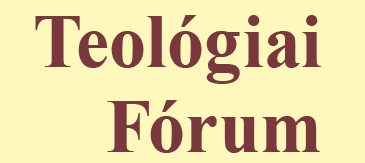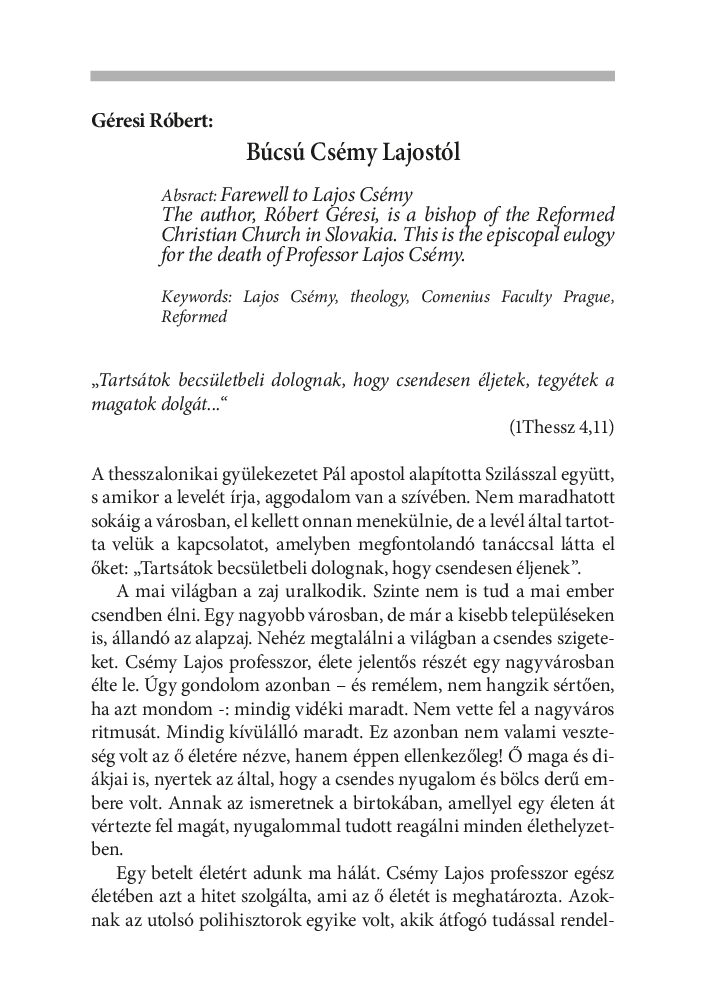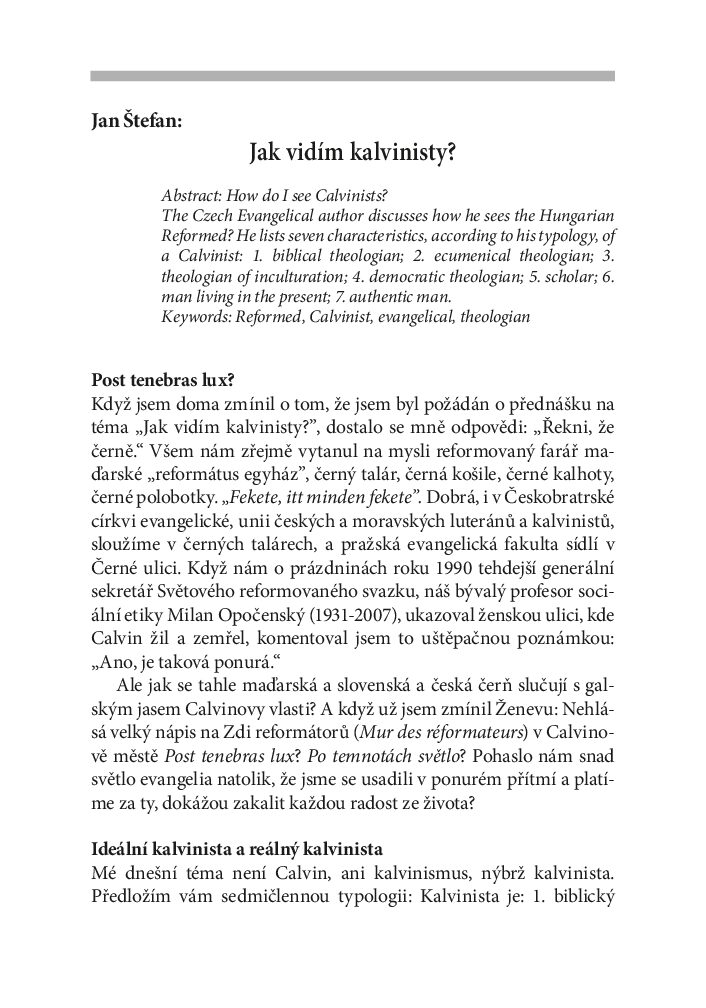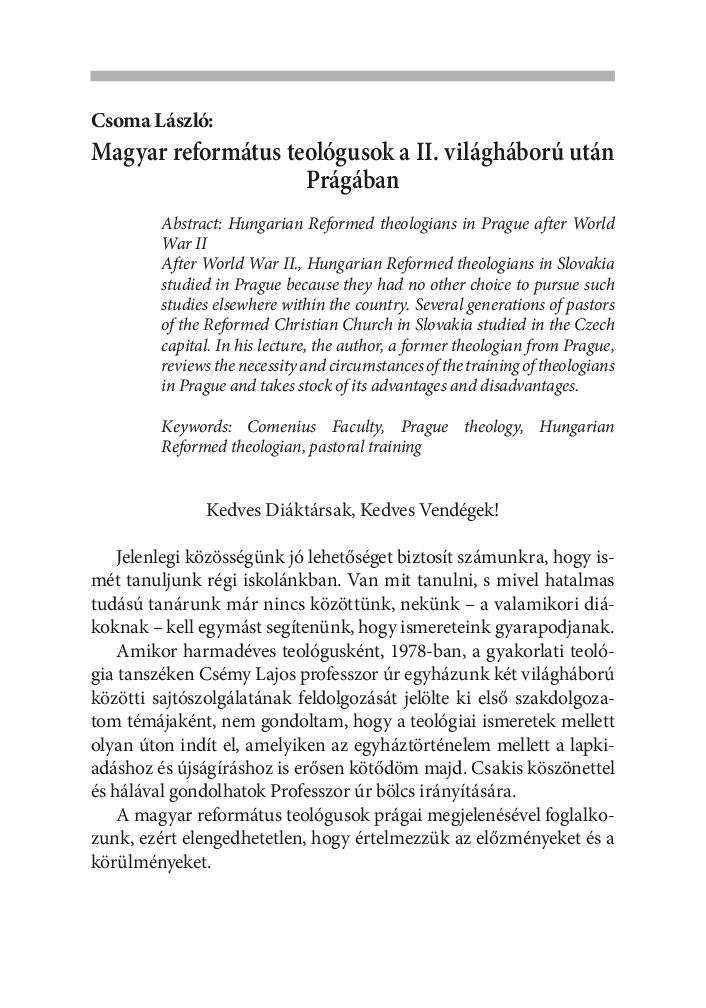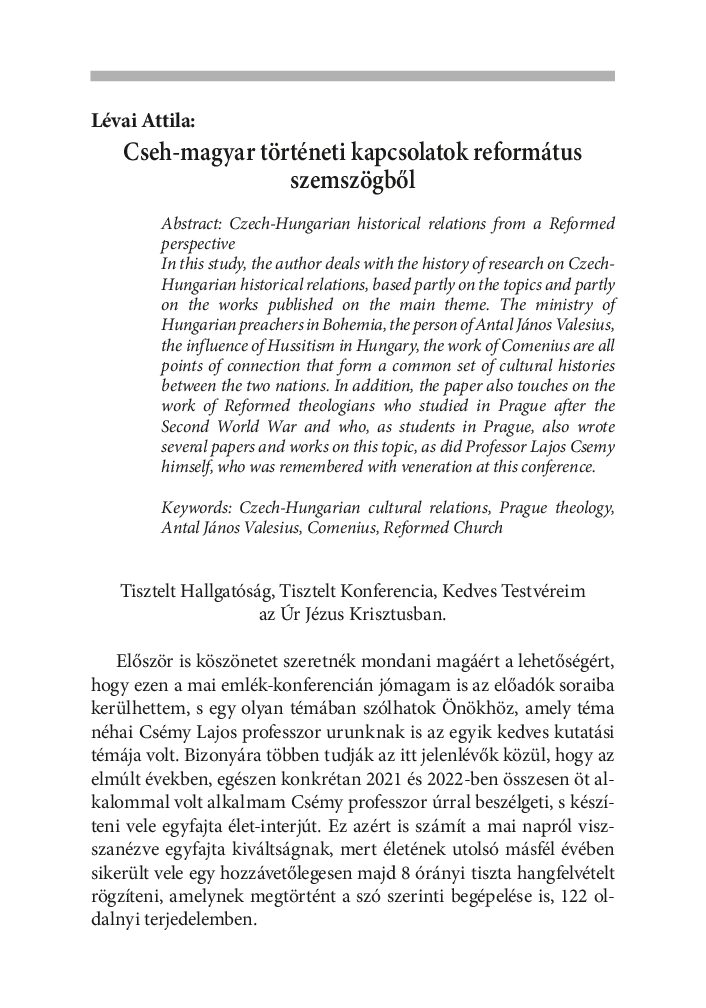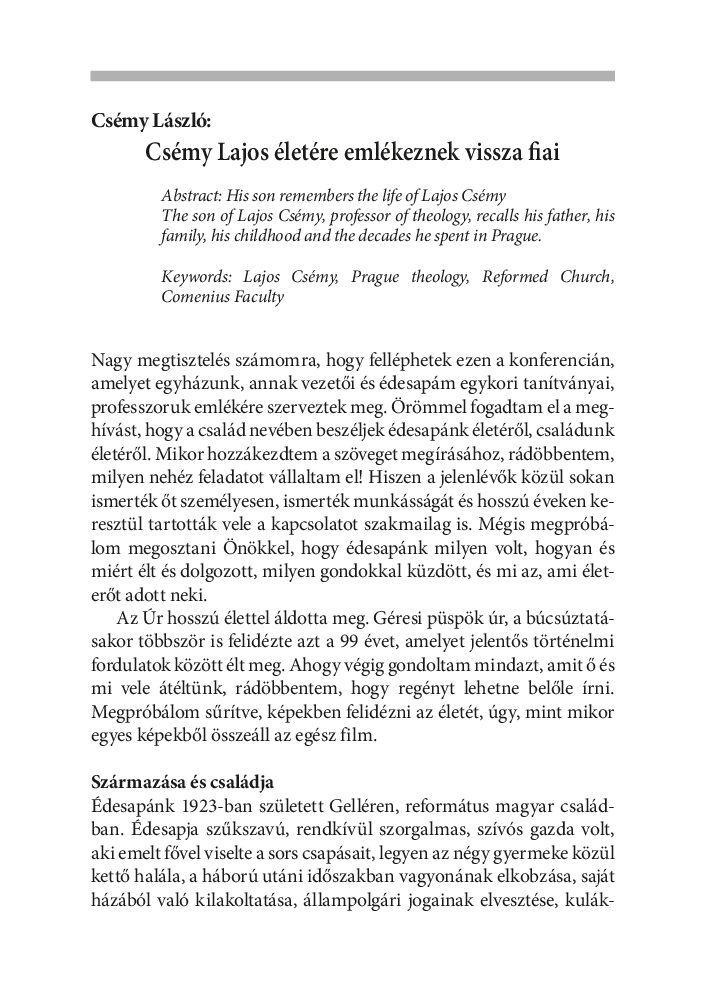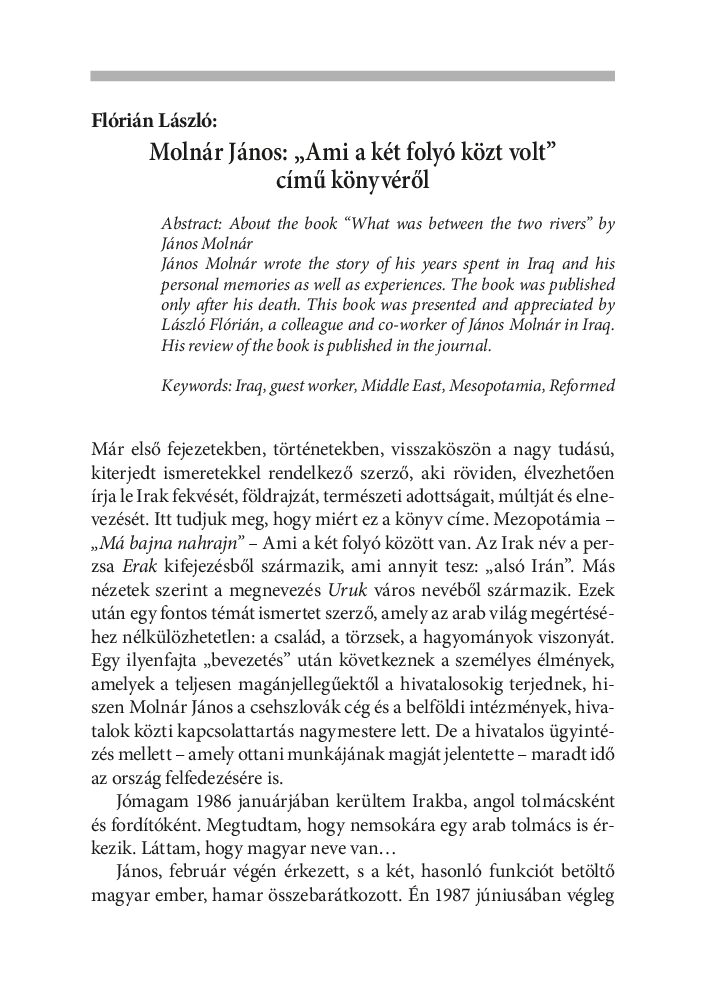In his study, the Czech author examines how and why did Hungarian Reformed theologians – students and teachers – end up at the Evangelical Faculty of Theology in Prague? He gives an overview of the functioning of the faculties of theology in Czechoslovakia during the communist period, which the communist state completely isolated from higher education. The paper gives a unique perspective on how the totalitarian regime viewed the Reformed Church. He draws a picture of the Reformed Church on the basis of state reports from the 1950s, and concludes that the Czechoslovak communist state was satisfied with the conditions in the Reformed Church, which is why Reformed people were allowed to study at the Prague theology faculty and why Hungarian Reformed teachers were allowed to come to Prague. The study also describes how, how and why the state interfered in the functioning of the Prague theology until the change of regime in 1989.
Keywords: Comenius Faculty, Prague theology, Hungarian Reformed theologian, pastoral training
